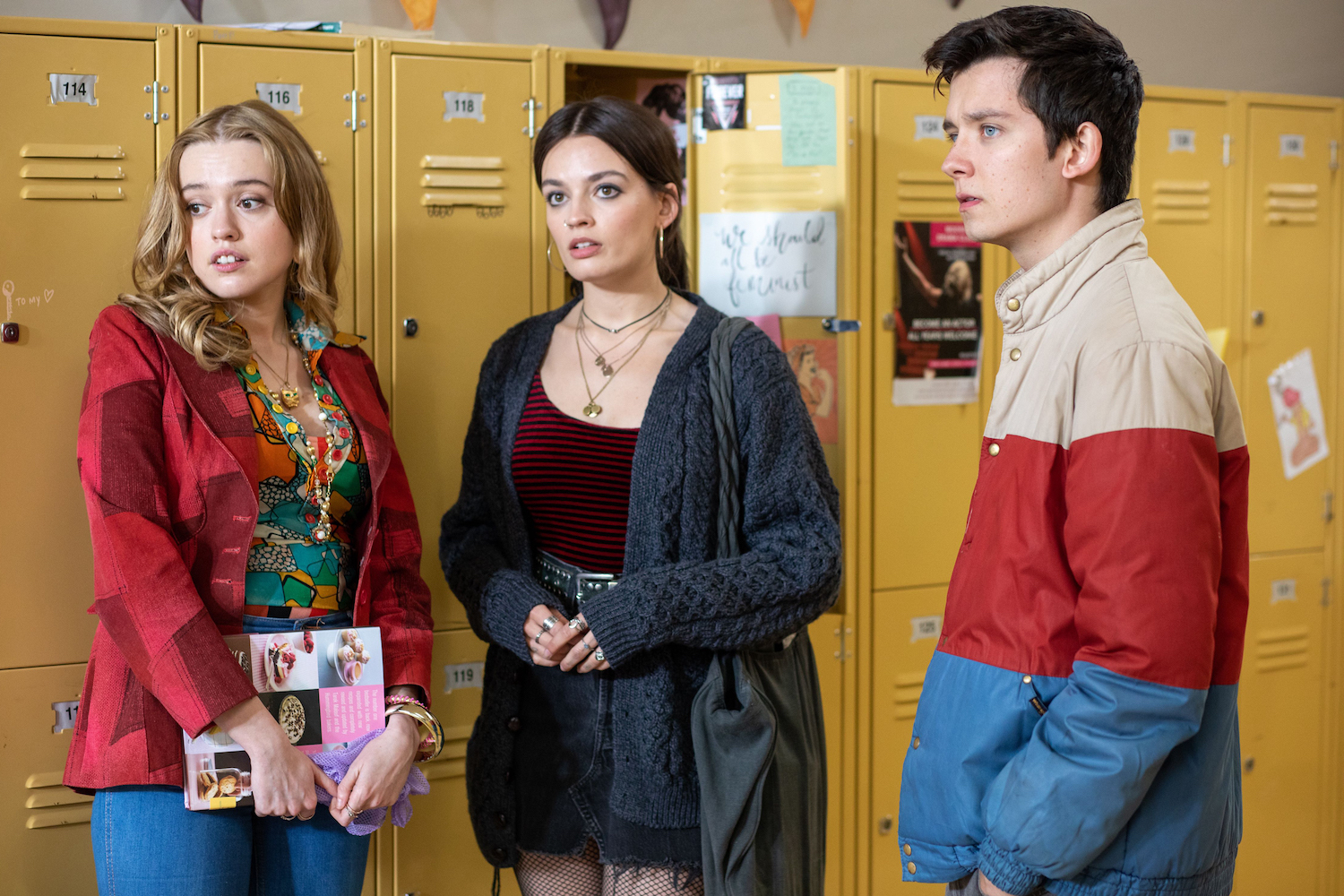From season 2 of Netflix’s Sex Education, “Sex doesn’t make us whole. And so, how could you ever be broken?” This line is perhaps the best asexuality validation yet from modern television.
In the episode, drama student Florence (Mirren Mack) comes to the realization that she doesn’t view sex in the same way as her peers. As her friends try to convince her that she needs to have sex in order to understand the character Juliet—from Romeo and Juliet—she realizes she’s never wanted to have sex. Not only does the entire conversation between Florence and the school’s sex therapist Jean Milburn (Gillian Anderson) resound with the asexual community, it also allows for those who do not yet know about asexuality to understand it.
To more accurately pinpoint what makes the conversation so great, let’s break down the important lines:
“I don’t want to have sex,” Florence said. “I don’t want to have sex at all. Ever, with anyone.”
This is the general feeling aces have. In its simplest terms, aces are individuals who don’t experience sexual attraction toward anyone and often don’t want to or have a need to have sex.
Ace people often have to hear comments such as “maybe you’re not ready yet” or “you just haven’t felt how good sex is” when asked about their asexuality. The issue that arises from this viewpoint is that aces get labeled as being broken, and therefore need fixing. Until 2013, a lack of sexual desire was even diagnosed as a mental disorder—hypoactive sexual desire disorder—by the American Psychological Association.
“I think I might be broken,” Florence said.
Far too often, ace people may feel broken, as they do not experience the sexual attraction that the majority of people do. They might feel as if they are missing a seemingly vital part of their life.
It becomes increasingly difficult as well in the hyper-sexualized media landscape we are faced with today. People are expected to be into sex—after all, sex sells—and aces just are not.
“It’s sort of like I’m surrounded by a huge feast with everything I could want to eat but I’m not hungry,” Florence said.
While food metaphors are the nearest approximation of having people understand what it is to be asexual, it gives off the notion that sex is a necessity in the same way food is. Humans need to eat to survive, but humans do not need sex to survive.
However, Florence’s line still rings true in a way that aces are content not participating—or more accurately, not experiencing—in the feast that is sex. “Sex just doesn’t do it for some people,” Jean said.
“But I still want to fall in love,” Florence replied.
Florence’s line does two things: first, it introduces the notion that sex and love always go together in a relationship. Second, this mindset has been so ingrained in society that it has led to the belief that if aces forfeit sex, they forfeit love.
Asexuality and aromanticism do not always have to be linked together. Aces can still experience romantic attraction. Both asexuality and aromanticism have spectrums of their own that can better define what exactly they feel is best for their identity.
Asexual characters in popular media most often seem to surface when creators confirm their characters’ identity without being explicit about it in their dialogue. The Shadowhunters series character Raphael Santiago and BoJack Horseman’s Todd Chavez come close to overtly mentioning their asexuality, but Sex Education’s Florence cuts no corners.
Only time will tell how many more ace characters will appear on television to validate other aces out there.
